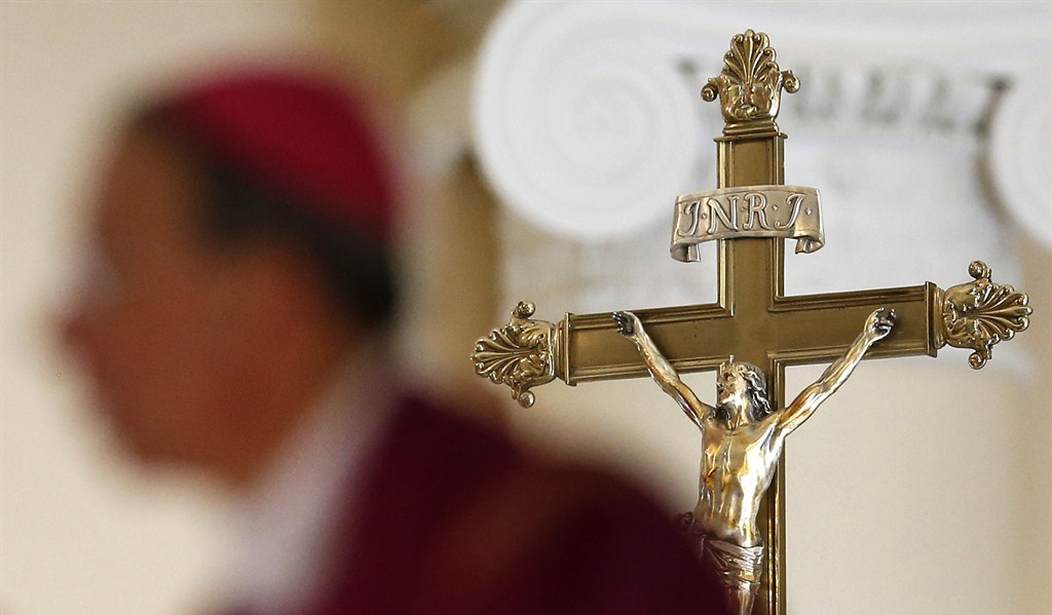What is the connection between personal freedom and rising from the dead?
When America was in its infancy and struggling to find a culture and frustrated at governance from Great Britain, the word most frequently uttered in speeches and pamphlets and editorials was not "safety" or "taxes" or "peace"; it was "freedom." Two acts of Parliament assaulted freedom and broke the bonds with the mother country irreparably.
The first was the Stamp Act, which was enforced by British soldiers, who used general warrants issued by a secret court in London to rummage through the personal possessions of any colonists they chose, ostensibly looking to see whether they had purchased the government's stamps.
These general warrants, like the ones the secret Foreign Intelligence Surveillance Court issues in America today, did not specifically describe the place to be searched or the person or thing to be seized -- which our Constitution requires. Rather, they granted authority for the bearer to search wherever he pleased and seize whatever he wanted -- as FISC warrants do today, in contravention of our Constitution.
The second intolerable act was the imposition of a tax to pay for the Church of England, which all adult male property-owning colonists were forced to pay, no matter their religious beliefs.
The Stamp Act assaulted the right to be left alone in the home, and the Church of England tax assaulted the free exercise of religion. These two laws caused many colonists to realize they needed to secede from Great Britain and form their own country, in which freedom would be protected by the government, not assaulted by it.
They did that, of course, yet today the loss of freedom still comes in many forms.
Sometimes it is direct, as when Congress tells us how to live and the courts permit it to do so. Sometimes it is subtle, as when the government borrows or prints money to pay its bills and, as a result, all the money and assets we already have lose much of their value and our descendants will be taxed to repay the loans. Sometimes the government lies about its assaults, as when the National Security Agency reads our email and text messages and listens to our phone calls without a search warrant based on constitutional norms and denies it.
Recommended
Freedom is the ability of every person to exercise free will without a government permission slip or watchdog. Free will is a natural characteristic we share in common with God. He created us in His image and likeness. As He is perfectly free, so are we.
When the government takes away free will, whether by fiat or by majority vote, it steals a gift we received from God; it violates the natural law; it prevents us from having and utilizing the means to seek the truth. Because the exercise of free will to seek the truth is a natural right, the only time it is moral for the government to interfere with it is when one has been fairly convicted by a jury of using fraud or force to interfere with the exercise of someone else's natural rights.
We know, from events 2,000 years ago that Christians commemorate this week, that freedom is the essential means to discover and unite with the truth. To Christians, the personification, the incarnation and the perfect manifestation of truth is Jesus -- who is the Christ, the Son of God and the Son of the Blessed Virgin Mary.
On the first Holy Thursday, Jesus attended a traditional Jewish Passover Seder. Catholics believe that at His last supper, Jesus performed two miracles so that we could stay united to Him. He transformed ordinary bread and wine into His own body, blood, soul and divinity, and He empowered His disciples and their successors to do the same.
On the first Good Friday, the Roman government executed Jesus because it was convinced that by claiming to be the Son of God, He might foment a revolution. He did foment a revolution, but it was in the hearts and minds of men and women. The Roman government had not heard of a revolution of hearts and minds, so when it crucified Him, it thought it had triumphed over Him.
Jesus had the freedom to reject this horrific event, but He exercised His free will to accept it so that we might know the truth. The truth is that He would rise from the dead.
On Easter, three days after He died, He did rise from the dead. By doing that, He demonstrated to us that while living, we can liberate our souls from the slavery of sin and our free will from the oppression of the government. And after death, we can rise to be with Him.
Easter, which manifests human immortality, is the linchpin of human existence. With it, life is worth living, no matter its costs or pains. Without it, life is meaningless, no matter its fleeting joys or triumphs. Easter has a meaning that is both incomprehensible and simple. It is incomprehensible that a human being had the freedom to rise from the dead. It is simple because that human being was and is God.
Jesus is the hypostatic union -- not half God and half man and not just a godly good man and not God connected to a man but truly and fully God and, at the same time, truly and fully man. When the Roman government killed the man Jesus, it killed God. When the man Jesus rose from His tomb, God rose from the dead.
What does Easter mean? Easter means that there's hope for the dead. If there's hope for the dead, there's hope for the living. But like the colonists who fought the oppression of the king, we the living can achieve our hopes only if we have freedom. And that requires a government that protects freedom, not one that assaults it.
Happy Easter.

























Join the conversation as a VIP Member